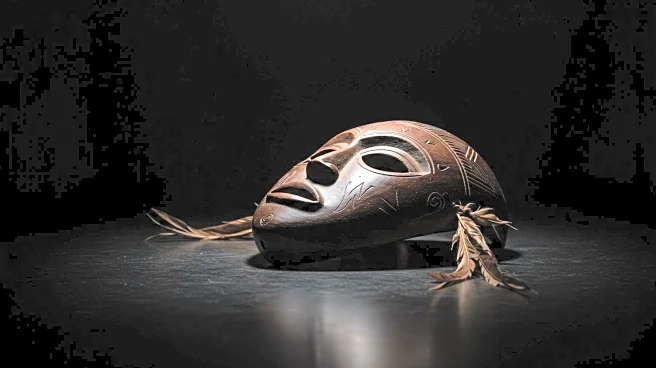What's Happening?
Lou Diamond Phillips stars in the crime drama 'Keep Quiet,' directed by Vincent Grashaw, which is set to premiere at the Locarno Film Festival. The film follows Teddy, a tribal cop played by Phillips, and his trainee Sandra, as they pursue a fugitive named Richie, portrayed by Elisha Pratt. The narrative unfolds on a rural Indigenous reservation, exposing dark secrets and potential gang warfare. The film, produced by Randomix Productions and Traverse Media, aims to blend entertainment with serious themes, focusing on universal issues such as family, community bonds, and grief. The cast includes Nick Stahl, Irene Bedard, Lane Factor, and Kimberly Guerrero, with a screenplay by Zach Montague.
Why It's Important?
The film 'Keep Quiet' is significant for its portrayal of Indigenous communities and the challenges they face, including gang violence and cultural representation. It highlights the importance of accurate representation in media, with Indigenous actors and advisors contributing to the authenticity of the narrative. The film's universal themes resonate beyond the Indigenous setting, addressing issues relevant to various ethnic communities. By showcasing these stories, 'Keep Quiet' contributes to broader discussions on diversity and representation in the entertainment industry, potentially influencing public perception and policy regarding Indigenous communities.
What's Next?
Following its premiere at the Locarno Film Festival, 'Keep Quiet' will continue its festival circuit at Oldenburg. The film's creators hope for a wide audience reception, aiming to bring attention to the issues depicted in the movie. The success of the film could lead to further opportunities for Indigenous stories in mainstream media, encouraging more projects that focus on underrepresented communities. The film's reception may also influence future collaborations between filmmakers and Indigenous advisors, promoting cultural sensitivity and authenticity in storytelling.
Beyond the Headlines
The film's production involved collaboration with Indigenous communities, including the Cheyenne and Arapaho tribes, which provided cultural insights and authenticity. This partnership highlights the ethical considerations in filmmaking, emphasizing respect and representation for Indigenous cultures. The film's approach to universal themes, such as loss and community bonds, suggests a shift towards more inclusive narratives in cinema, potentially impacting cultural dialogues and fostering understanding across different communities.










